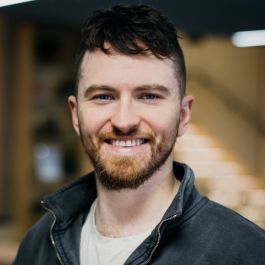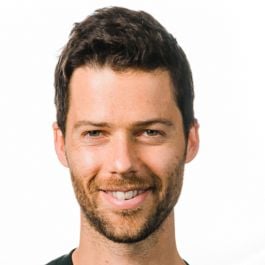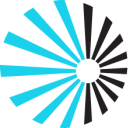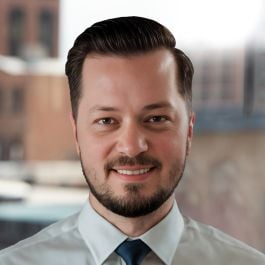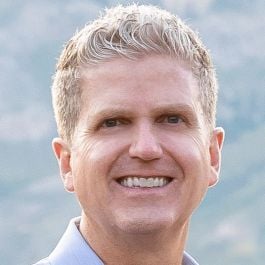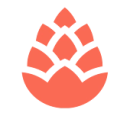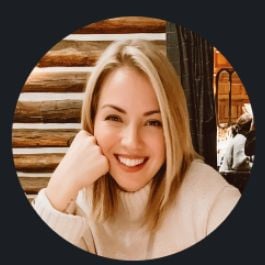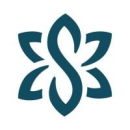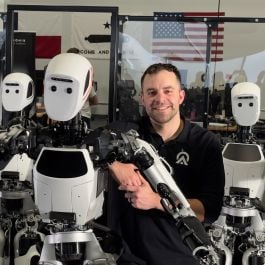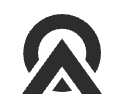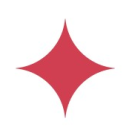The straw that broke the camel’s back. The tipping point. The linchpin in the wheel. These are all idioms for something small that causes a chain reaction.
In ecology this is known as the “keystone species,” the one organism that, if removed, forces the entire ecosystem to eventually crumble, or at least radically change. Scientists and conservationists pay careful attention to keystone species. If those bees, wolves, coral reefs and mangroves suddenly start to decline — it’s a sign that something is wrong.
For organizational psychologists and HR researchers, the keystone species of their field is a metric evaluating the psychological safety of the workplace. If this metric is low, it’s a sure sign that something is wrong.
Psychological safety is the belief that an environment is a secure space to ask questions, share ideas, raise concerns, ask for help and admit to mistakes without fear of negative consequences. It’s also a key indicator of a lot of things in the workplace. High levels of psychological safety are often connected to strong DEI practices. Businesses with psychologically safe environments also often see high performance, employees with positive attitudes at work and teammates who are open to feedback and failure.
A multiyear study at Google found that, among the 180 teams it studied, psychological safety was the most important characteristic of high-functioning teams.
Now, psychological safety doesn’t just happen overnight. It requires that workplaces are actively inclusive of diverse backgrounds and perspectives. It requires open feedback loops and proof that feedback is taken seriously. And it requires management practices that encourage trying new things, even when success isn’t guaranteed.
When a workplace is psychologically safe, the end result is a thriving ecosystem that can bounce back when things go wrong.
Built In spoke with seven tech leaders who were eager to share what makes their workplace culture so unique, and where they see examples of psychological safety at every level.
Featured Companies
MVF is a marketing tech company that helps businesses grow by generating new customers.
Describe MVF’s company culture in one word. What made you pick that word?
“Un-egotistical.” It doesn’t matter how long you’ve been at the company for, or at what level. If you have an idea to change and improve things, you’ll be listened to and have the freedom to make that change. There are no egos getting in the way of positive change
For example, in the paid marketing team, there is full control over their performance marketing campaigns. They get to own the ideation and execution. They do not need sign-off from a client, or a more senior employee. As long as their concepts abide by platform policy, they have freedom to craft their own strategy, which significantly accelerates the team’s learning and development.
“It doesn’t matter how long you’ve been at the company for, or at what level. If you have an idea to change and improve things, you’ll be listened to and have the freedom to make that change.”
How long have you been with MVF, and what professional growth or development have you seen in that time?
I joined in September 2014, so it’s been just over 10 years. A long time to stay at one company for, but I’ve chosen MVF as my long-term stay because of the progression, culture and impact I can make at this company. I joined straight out of University, and have been able to progress to the senior leadership team at MVF over that time.
MVF does an excellent job training and developing their own talent, which I’ve been able to benefit from over the years. This has all helped me to learn new skills, challenge myself and take on new and exciting projects throughout the 10 years I’ve been at the company. If you’re looking for a company that recognizes hard work and develops their talent, this is the place to be.
Starburst offers a full-featured data lake analytics platform that includes all the capabilities needed to discover, organize and consume data without the need for time-consuming and costly migration projects.
Describe Starburst’s company culture in one word. What made you pick that word?
“Bold.” We’re an up-and-coming company in a highly competitive market, so we need to undertake ambitious and often high-risk projects to get ahead.
For example, we’re currently investigating radical changes to our architecture to drastically reduce delivery cost and improve user experience for our on-prem product. We also just launched our new Streaming Ingest offering that uses state-of-the art cloud architecture and a bottom-up design to cut the costs of ingesting data into a data lake by four to ten times. Both of these required a willingness to take risks and explore the unknown, which is possible here at Starburst due to the high trust and alignment across teams and the culture of boldness.
“Both of these required a willingness to take risks and explore the unknown, which is possible here at Starburst due to the high trust and alignment across teams and the culture of boldness.”
How long have you been with the company, and what professional growth or development have you seen in that time?
I have been with the company for seven months now, but it feels like a decade — in a good way. Things move fast here, and I always have a wide range of exciting problems to work on. That means there is plenty to do — both inside and outside my comfort zone — but also that I’m learning a lot.
Personally, the biggest growth has been in my ability to handle ambiguity and to prioritize. On the ambiguity side, I have learned to move forward even if I don’t have all the data I would have liked. I have also learned the importance of ensuring everyone is aligned on what to do next when the path forward is unclear. On the prioritization side, I have learned to say ‘no’ early and directly, rather than being overly polite or playing for time. I might be wrong from time to time, but then the person I’m responding to can escalate and we get together as a team to look at our priorities together.
Pie Insurance is a small business insurance company on a mission to make insurance less expensive, simpler and more transparent.
Describe Pie’s company culture in one word. What made you pick that word?
“Enthusiastic.” I pick this word because it represents a combination of energy, optimism and motivation.
We derive energy from working with, learning from and challenging one another to be the best versions of ourselves. We are optimistic about what the future holds for Pie, and our ability to be a disruptive player in the commercial insurance industry. We are motivated to achieve that goal both for our customers and ourselves, and to do what is necessary to make it happen.
“We derive energy from working with, learning from and challenging one another to be the best versions of ourselves.”
A recent example that demonstrates this would be our expansion into the commercial auto market, Pie’s second line of business. After recognizing the resources we were investing didn’t match the massive growth opportunity in front of us, we made the decision to go ‘all hands on deck.’ We rapidly shifted about 50 percent of our companywide technology resources towards clear, time-bound goals and worked across our teams to confirm what outcomes were high-confidence, stretch and out of scope. We are confident that, with the momentum we’ve established, we will grow this new line of business into a major revenue driver for Pie.
What’s the coolest project you’ve worked on recently, and how did it help you grow professionally?
A big part of Pie’s differentiation is our focus on automated underwriting decisions about whether to decline, quote or manually review a submission for insurance coverage. We receive a vast number of submissions annually, so it’s a problem at scale that is only growing.
As part of our expansion into commercial auto, we took the opportunity to re-evaluate whether to extend our existing rules engine for automated underwriting decisioning, build something new or leverage a third party. We ended up with a hybrid solution. We are using a leading SaaS rules engine for a portion of the architecture, where there was little added value for us to recreate standard functionality. However, we will build meaningful custom code in areas that can leverage Pie’s unique expertise and business requirements.
In the past, I’ve come from organizations that looked at build-versus-buy questions as all or nothing. This was a good reminder that many decisions are not binary, and there is often a middle path that can minimize the trade-offs associated with polar options. I think this exemplifies Pie’s operating principle of reasoning about problems through “first principles.”
Cedar is a healthtech platform that connects providers and payers — all powered by data science and interactive design.
Describe Cedar’s company culture in one word. What made you pick that word?
“Vibrant.” Cedar’s culture is vibrant.
The billing experience in healthcare is rough. Millions of Americans will agree. We have become used to customer experiences that are intuitive, relevant and simple thanks to companies like Netflix and Amazon. Cedar is working to create a similar experience in healthcare. People looking to work for a mission-driven company solving real problems get excited about Cedar.
Cedar has worked hard to build a world-class talent team. Our people come from many backgrounds. We were raised in Utah, Singapore, Hawaii, California, Taiwan, Texas and other places. We have athletes, musical performers, dog rescuers, foodies, city and country “folk.” Despite our differences, and because we’re passionate about the work we’re doing, we work hard to find people that can add to the vibrance here.
“Despite our differences, and because we’re passionate about the work we’re doing, we work hard to find people that can add to the vibrance here.”
Our team recently met together in our New York City headquarters to solve problems and have some fun. This together time was extra special as multiple other teams — specifically many of our engineering and product teams — were also on site. Being together to collaborate in real life while enjoying pancakes made from scratch by our chief product officer was so valuable.
How long have you been with Cedar, and what professional growth or development have you seen in that time?
I’ve been with Cedar, via an acquisition and merger with OODA Health, since December 2018. Nearly six years. I was the sole recruiter at OODA Health for most of my time before the merger. Shortly after joining Cedar, I had the opportunity to begin leading Talent for Makers — a segment specific to tech roles. Along with building an incredible team of recruiters and sourcers, I’ve been mentored by great people — both in talent acquisition and other parts of the business.
Beyond my growth as a people manager, my ability to utilize data has soared. Leveraging data to drive our recruiting strategies is a game changer. W. Edwards Deming said, “Without data, you’re just another person with an opinion.” The movie Moneyball became so much more interesting to me. We use data to measure recruiting performance, anticipate start dates, identify trends and make other informed decisions. We want to be the Peter Brands of recruiting.
With progression from an individual contributor to a leader overseeing a productive and growing organization, Cedar has supported multiple components of my professional and personal growth. It’s been incredible to have such a supportive team and environment that pushes us to continue progressing.
SonderMind is a digital health company redesigning behavioral health through covered and timely access, increased utilization and data-validated quality outcomes.
Describe SonderMind’s company culture in one word. What made you pick that word?
SonderMind is transformative. We are constantly evolving and embracing change to meet our company mission of improving mental health access, utilization and outcomes while driving employee growth as a career-defining place to work.
When we think about the ability to transform, shape and mold — this is rooted in our company mission and vision. We aspire to transform the mental healthcare industry and ultimately build a healthier world through improved mental wellness. And, while we strive to achieve our company goals, as an employer we also strive to be a career-defining place to work that transforms your career. We value adaptability and creativity, encouraging every team member to not only excel in their roles but also to courageously contribute to improving how we serve clients, providers, payors and partners.
“We aspire to transform the mental healthcare industry and ultimately build a healthier world through improved mental wellness.”
Whether it’s through continuous learning, cross-functional collaborations or implementing innovative technologies, our culture empowers individuals to initiate and lead transformations that positively impact the company. This growth-oriented mindset is at the heart of what makes our culture transformative.
What’s the coolest project you’ve worked on recently, and how did it help you grow professionally?
Recently, we brought our extended leadership team together for a planning session, which included completing a talent review of the organization.
Talent reviews are essential to thinking about professional development because they provide a structured way to assess and develop potential and ensure the right people are in the right roles. They enable leadership to make informed decisions about promotions, succession planning and growth opportunities.
So, what does that look like? Andrew Jones, who sits in our marketing organization, was identified as a top performer for consistently exceeding expectations and someone who embodies our company values. Given recent organizational shifts, Andrew was promoted to lead our performance marketing team, where he could drive greater impact and move from an IC role into people leadership. SonderMind invested in his growth by offering access to a leadership coaching service, working one on one with a coach focusing on critical areas to succeed in his new capacity. These investments are rooted in the company’s goal of being a career-defining workplace, supporting employees’ career growth while celebrating their contributions to the organization.
Apptronik is building robots for the real world to improve human quality of life and address labor shortage.
Describe Apptronik’s company culture in one word. What made you pick that word?
The first word that comes to mind when I think of Apptronik is “passion.” We’re passionate about everything — from building world-class robots to our coffee preferences and friendly office competitions.
From a technical standpoint, I see the most passion in our internal ‘accomplishments’ chat. Here, anyone can share their team’s recent breakthroughs, like a new actuator design completing a force test or an Apollo system performing a complex task autonomously. Each post is met with encouragement and insightful questions, driving the team to keep innovating and improving.
“Each post is met with encouragement and insightful questions, driving the team to keep innovating and improving.”
Beyond robots, our passion shows through in the many events we host, lunch-and-learns where we share presentations about our hometowns, office scavenger hunts and food bank volunteering nights. We also have groups for personal passions, like pick-up soccer, a channel for those who build things outside of work and even a ‘Green Thumb’ channel for plant lovers to swap tips and plants.
What’s the coolest project you’ve worked on recently, and how did it help you grow professionally?
Recently, my team and I traveled to Chicago with Apollo, our humanoid robot, to showcase it at the International Manufacturing Technology Show, a six-day event attended by over 89,000 people from 110 countries. It was a great opportunity for Apptronik to introduce Apollo to a global audience, many of whom had never seen a humanoid robot in person.
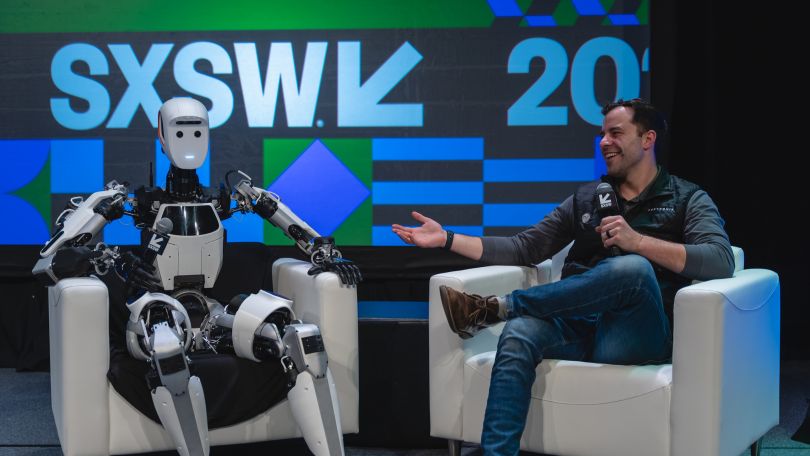
To prepare, we programmed Apollo to perform emotive behaviors and a part-inspection demo, where it picked up a machined part, checked for defects and sorted it into ‘good’ and ‘bad’ bins. Having done many demos and roadshows, I’ve learned the value of setting aside time for creativity — pushing the boundaries of what’s possible sparks innovation and fosters collaboration.
And collaborate we did. As part of the Emerging Tech Center within IMTS, we were booth neighbors with Oak Ridge National Laboratory, who were running an injection-molding machine as part of a new, innovative manufacturing process. After the conference one day, we teamed up to see if Apollo could run the machine through teleoperation. With great collaboration, Apollo became the first humanoid robot to run an injection molding machine.
Spark Advisors is a mission-driven company helping independent Medicare brokers build insurance businesses.
Describe Spark Advisor’s company culture in one word. What made you pick that word?
“Empathy.” It informs how we interact with each other and with our agents. One of our core values is “Take Nothing for Granted,” and a fundamental part of that for Spark is having deep empathy for our agents and each other; it’s been the key to our growth so far.
Instead of just betting on sheer efficiency for disrupting the industry, we’ve bet on our agents, because they use empathy every day to connect and support their clients. Our team regularly uses empathy to hear, support and collaborate to make our company better and drive the change we want to see in this industry, all while navigating the fast pace of a startup. I could have picked a word like “ambitious” but it doesn’t capture the human component of Spark — empathy is our superpower.
“I could have picked a word like ‘ambitious’ but it doesn’t capture the human component of Spark — empathy is our superpower.”
What’s the coolest project you’ve worked on recently, and how did it help you grow professionally?
Historically, the industry has had a lack of transparency — agents and agencies lack trust in their up lines and carriers, often unable to get on the same page. At Spark, we believe that if we can address the inefficient and disorganized data processes that permeate the industry, transparency will follow.
The coolest project I’ve worked on at Spark has been tackling this problem head-on using a modern data tech stack, automating messy and unstructured data from carriers so our agents have the most up-to-date insights at any moment. This project has helped me grow in so many ways. I got to stand up data infrastructure from the ground up with our data engineers, research and learn the latest data pipelining tools, stand up an analytics function for the organization and work directly with our top agents to build a data product vision. This multiyear project has given me a broad range of experience and skills and the confidence that I can take on much more beyond my engineering background.



